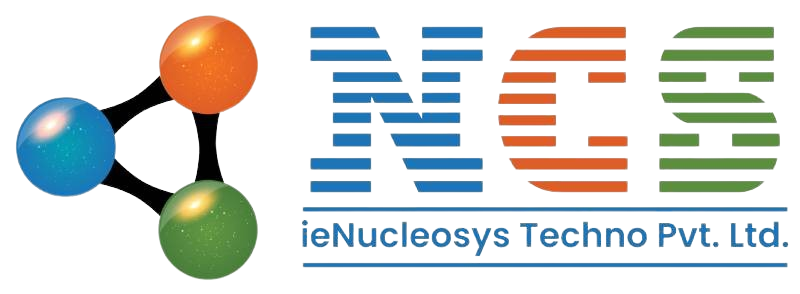Last Updated on June 17, 2025 by Nucleosystech

In today’s fast-paced digital world, businesses rely heavily on seamless integration between various applications, systems, and data sources. This need has led to the rising demand for skilled Mulesoft developers—experts who specialize in building integration solutions that connect disparate systems efficiently and reliably. Whether it’s enabling real-time data synchronization or creating APIs for easier access to business data, a Mulesoft developer plays a crucial role in modern enterprise architectures.
In this blog, we will explore what makes a Mulesoft developer indispensable, the skills required to succeed, career prospects, and why businesses need their expertise now more than ever.
What is a Mulesoft Developer?
A Mulesoft developer is a software engineer who specializes in using the Mulesoft Anypoint Platform, a leading integration tool, to design, develop, and manage APIs and integrations. Mulesoft facilitates the connection of various on-premises and cloud-based applications, enabling data to flow smoothly across the enterprise ecosystem.
By using this platform, Mulesoft developers help organizations automate workflows, reduce operational costs, and accelerate time-to-market for new digital services. They are instrumental in ensuring systems talk to each other in a secure and scalable way.
Why Are Mulesoft Developers in High Demand?
The rise of digital transformation initiatives has dramatically increased the need for seamless application connectivity. Here are a few reasons why Mulesoft developers are highly sought after:
1. Complexity of Modern Systems
Today’s enterprises use numerous software platforms—CRMs, ERPs, marketing automation tools, and more. A Mulesoft developer bridges these systems, eliminating data silos and enhancing operational efficiency.
2. API-Led Connectivity
Mulesoft’s API-led approach allows developers to create reusable APIs that speed up integration projects. This approach requires specialized skills that only experienced Mulesoft developers can offer.
3. Cloud Migration and Hybrid Environments
As many organizations migrate to the cloud or adopt hybrid architectures, integration challenges grow. Mulesoft developers help businesses seamlessly integrate cloud and on-premise systems.
4. Rapid Innovation
The ability to quickly develop and deploy integrations gives companies a competitive edge. Skilled Mulesoft developers help accelerate innovation cycles.
Essential Skills for a Successful Mulesoft Developer
If you’re considering a career as a Mulesoft developer, or looking to hire one, understanding the key skills is critical:
1. Proficiency in Mulesoft Anypoint Platform
Deep knowledge of the Mulesoft Anypoint Studio, API Manager, and other platform components is fundamental. Developers must know how to design, build, and deploy APIs and integrations effectively.
2. API Design and Development
Understanding RESTful API principles, RAML, and Swagger is essential for creating robust APIs that meet business needs.
3. Data Transformation and Mapping
Mulesoft developers use DataWeave, Mulesoft’s powerful data transformation language, to map and convert data formats seamlessly.
4. Knowledge of Integration Patterns
Familiarity with common integration design patterns like publish-subscribe, request-reply, and batch processing helps build scalable solutions.
5. Familiarity with Cloud Platforms
Experience with AWS, Azure, or Google Cloud complements Mulesoft skills, especially when integrating cloud-based services.
6. Troubleshooting and Monitoring
Debugging integration issues and monitoring API performance using Mulesoft’s monitoring tools is crucial for maintaining system health.
Career Path and Opportunities for Mulesoft Developers
The role of a Mulesoft developer offers promising career prospects due to growing demand across industries such as finance, healthcare, retail, and technology. Here’s what a typical career progression might look like:
-
Junior Mulesoft Developer: Focuses on developing simple integrations under supervision.
-
Mulesoft Developer: Handles complex API development, integration architecture, and deployment.
-
Senior Mulesoft Developer: Leads projects, mentors junior developers, and collaborates with architects.
-
Integration Architect: Designs enterprise-wide integration strategies using Mulesoft.
-
Consultant or Specialist: Advises companies on best practices and Mulesoft implementation.
Certifications like Mulesoft Certified Developer – Level 1 (Mule 4) can significantly boost career growth and credibility.
How Mulesoft Developers Drive Business Success
Investing in skilled Mulesoft developers can unlock numerous benefits for businesses:
Improved Efficiency
Automated workflows reduce manual tasks and human error, increasing productivity.
Faster Time-to-Market
Reusable APIs speed up development cycles, allowing quicker launches of new products or services.
Enhanced Customer Experience
Real-time data integration enables businesses to respond faster and offer personalized experiences.
Cost Savings
Optimized integrations lower IT costs and reduce the need for multiple point-to-point connections.
Challenges Faced by Mulesoft Developers
While Mulesoft offers powerful tools, developers also encounter challenges such as:
-
Complex legacy systems that require custom connectors
-
Handling large volumes of data without performance issues
-
Managing security and compliance across multiple systems
-
Keeping up with frequent platform updates and new features
Experienced Mulesoft developers anticipate and overcome these hurdles to deliver robust solutions.
Tips for Businesses Looking to Hire a Mulesoft Developer
To get the most out of your investment, here’s what businesses should consider:
-
Assess technical expertise: Look for certifications and hands-on experience with the Anypoint Platform.
-
Check for problem-solving skills: Integration projects often require creative solutions.
-
Evaluate communication skills: Developers need to collaborate with business and IT teams effectively.
-
Consider ongoing support: Integration requires maintenance and monitoring post-deployment.
Learning and Upskilling as a Mulesoft Developer
If you’re an aspiring Mulesoft developer, here’s how to stay ahead:
-
Get certified with official Mulesoft courses
-
Participate in community forums and events
-
Build hands-on projects using Anypoint Studio
-
Stay updated with platform releases and new integration trends
Continuous learning is vital to keep pace with evolving technologies.
Conclusion
In an era where connectivity defines business agility, the role of a Mulesoft developer has become indispensable. Their expertise in building scalable, secure, and efficient integrations empowers organizations to leverage their digital assets fully.
Whether you are a developer aiming to specialize in this niche or a company looking to implement top-notch integration solutions, investing in Mulesoft expertise is a step toward future-ready digital transformation.
